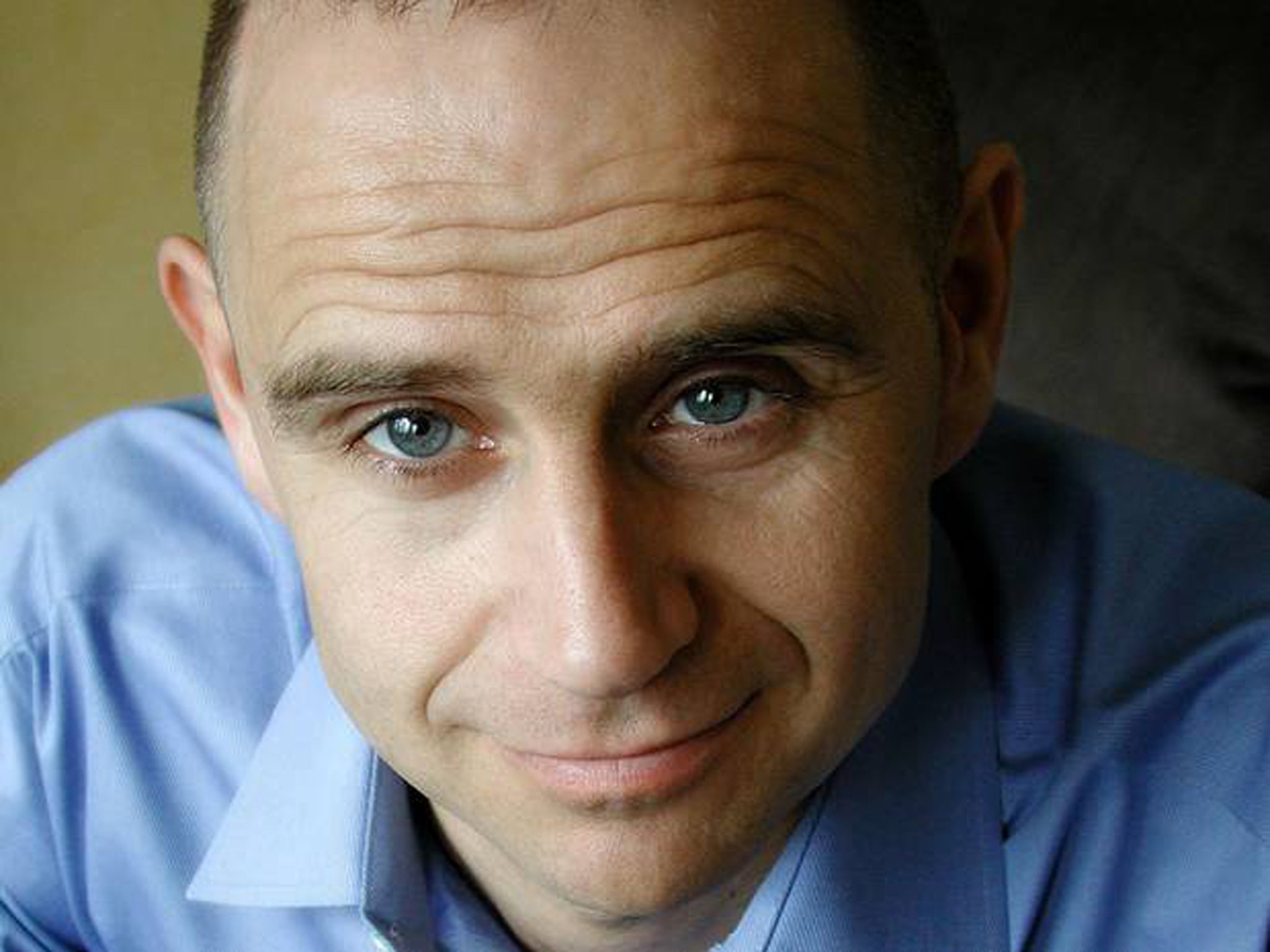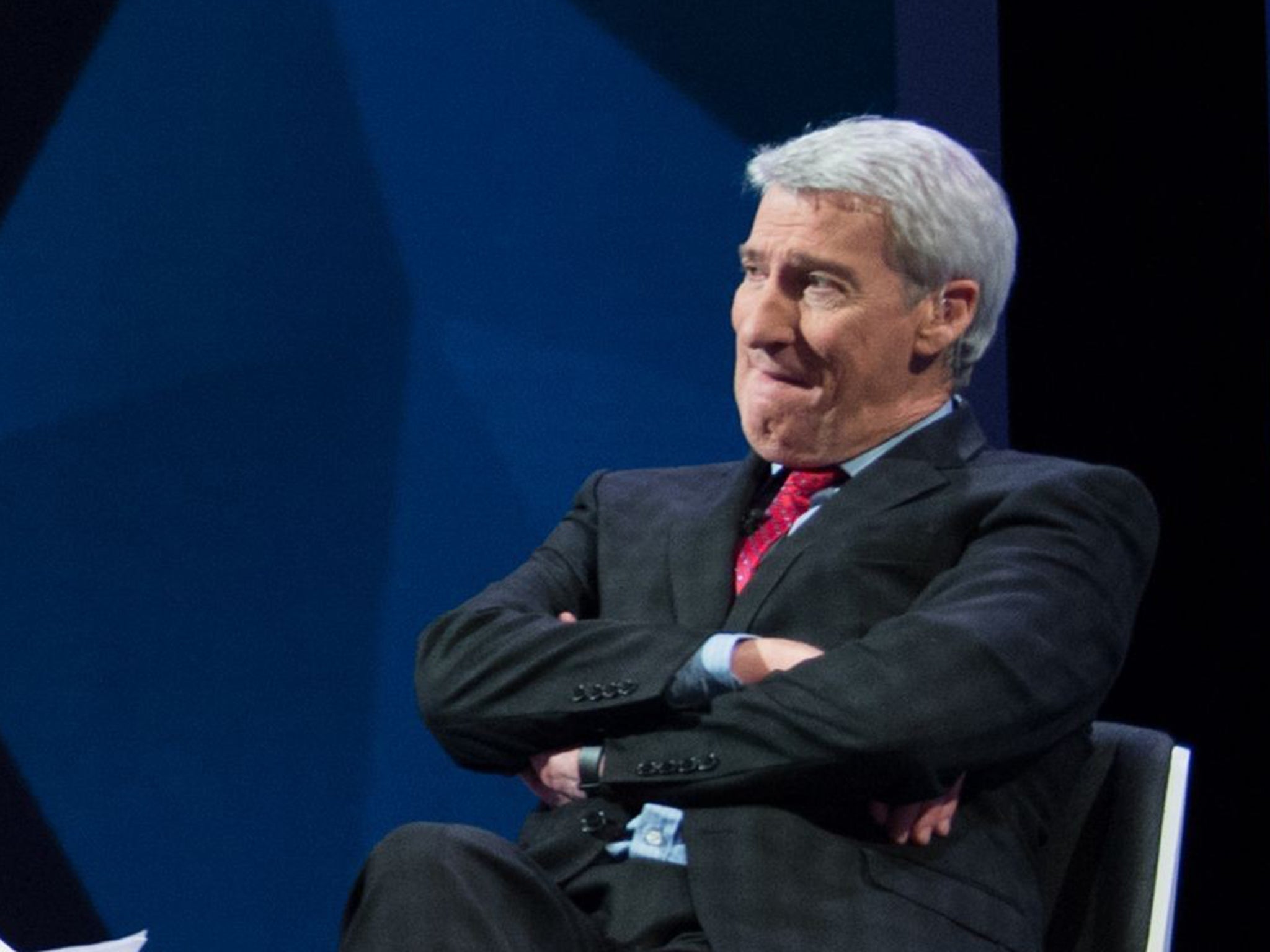Evan Davis says Jeremy Paxman's combative interviewing style is 'overdone' and 'worn out'
Davis replaced Paxman as the presenter of BBC Newsnight last year

BBC Newsnight presenter Evan Davis has criticised the combative interviewing style associated with fellow presenters Jeremy Paxman and John Humphrys , as “overdone”, “worn out” and “not a particular public service”.
Davis, who replaced Paxman as Newsnight’s lead presenter last year, said a culture of broadcast journalists “getting the scalp” and “tripping people into gaffes” had created an “arms race” between politicians and interviewers.
He added: “Politicians get better defences as interviewers get better attack techniques. Politicians now sound defensive and boring instead of making gaffes.”
Talking to Byline, a platform for crowdfunding journalism, Davis acknowledged that “on a good day Paxman and Humphrys can do great interviews”. But he added: “That style was fresh once and it has just become less interesting as everyone [has] seen it more and more used.”

Davis, 53, said interviewers should do better than trying to “make people say something... in order to then blow it up into something which isn’t really what they meant. I don’t think that’s a public service.”
Aggressive political interviews had helped create the “remarkable situation we are in where… when you have a private conversation with a senior politician you come out more impressed than when you see them in public.”
His comments echo those of fellow BBC presenter Andrew Marr. In a speech in May, Marr said: “I have never believed that the right approach to a political interview is to say to the interviewee, in effect, ‘You’re a scoundrel, you’re a liar, and I’m going to treat you like that.’”
Davis also criticised “dysfunctions” in the emerging model of “journalism based on social media”, listing them as “people rushing to judgement about things without reading anything about them, feedback loops where the same inaccurate things are howled around as if they are true, hysteria, mob rule, excessive emphasis on clickbait, the polarisation of sources… there is a lot wrong.”
Despite this, he said he was optimistic about the future of the industry, saying that it “isn’t fair to say... society is in danger of losing a lively public sphere of debate.”
Join our commenting forum
Join thought-provoking conversations, follow other Independent readers and see their replies
Comments
Bookmark popover
Removed from bookmarks